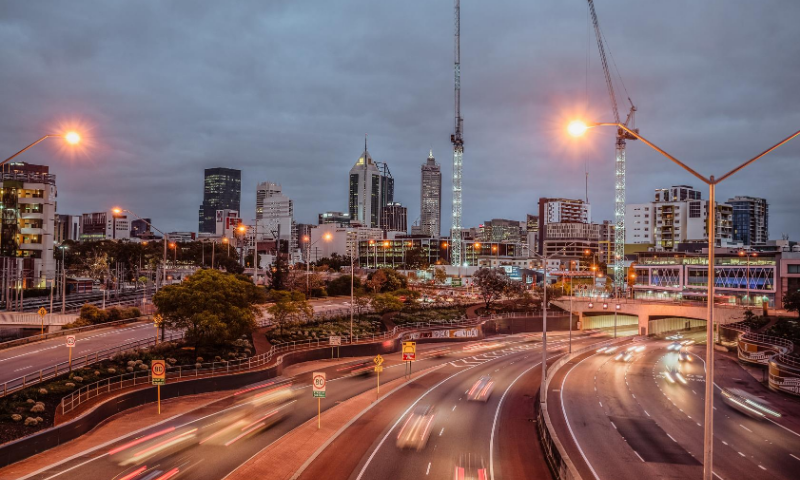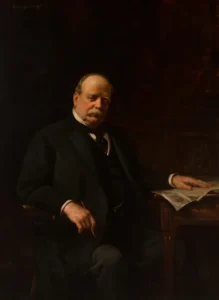WA infrastructure needs long-term reform, not short-sighted stimulus
Most economists understand the role of infrastructure is quite simple; it connects markets and decreases transaction costs. Citizens may recognise this as reduced road congestion and travel times or as faster internet speeds.
A new report published by Mannkal Economic Education Foundation points to how the key function of infrastructure is too often complicated by the short-term aspirations of populist politicians. The McGowan Government’s answer to the lack of direction infrastructure policy was to establish Infrastructure Western Australia. However, Mannkal’s “A Road to Somewhere: Depoliticising Infrastructure Decisions in Western Australia”, details how the powers and strategic direction of the new state-level infrastructure advisory body have been weakened to a point where its independence must be brought into question.
An ineffective Infrastructure WA (IWA) body will mean that the legacy of over-budget and delayed projects in will continue. The outer harbour-Roe 8 debacle is an ongoing and familiar political circus to many. Western Australians may also remember past failures like Tier-3 rail, the Ord River dam, or more recently, Oakajee Port. All were guided by the “visionary” leadership of Premiers including Colin Barnett, which ultimately cost taxpayers dearly and hindered the productive potential of our state’s economy.
IWA’s creation appears to be part of a coordinated effort by the McGowan Government to re-centre the state and political decision making at the core of infrastructure planning and delivery. As a result, it is entirely likely that infrastructure will continue to be delivered in a highly politicised, non-transparent manner.
Much can be done to improve infrastructure policy in WA. Further centralisation of spending decisions according to IWA’s arbitrary and inflexible long-term plans is not one of them. McGowan’s move presents real danger to the long-term prosperity of the state, particularly as politicians call for infrastructure stimulus in response to the COVID-19 fallout. Expect calls for “shovel ready’ and job creation schemes.
Despite claims, most investment in “shovel ready” infrastructure projects are masked attempts to gain electoral favour. Short-sighted spending makes the government of the day popular because Western Australian’s see the temporary boost to employment and the delivery of new (albeit often unessential and/or uneconomic) infrastructure. What they do not see, however, is the impending debt and economic distortions which future governments and taxpayers must pay for and fix as a result of ill-conceived infrastructure projects. The jobs are short lived, but the debt remains.
A properly functioning IWA Board should curtail spending of this type, yet under its current format, it appears they will endorse such schemes. The Board have cited job creation as a strategic outcome of infrastructure investment and are made up of a concentration of career bureaucrats who, while very accomplished, have strong affiliations with the incumbent government.
Mannkal instead argue for the need for greater private-sector involvement in the planning, financing, construction and operation of the states’ infrastructure. There is significant appetite and grounds for business to engage in public-private partnerships, however the government has made it increasingly difficult for these firms to participate in the state’s infrastructure.
The report also notes that state-owned infrastructure assets present considerable hidden cost-burdens to taxpayers given their current funding mechanisms. For example, in 2018-19, the Public Transport Authority received a $831-million and the Water Corporation $420-million in subsidies because the cost of their provision exceeds the prices which infrastructure users are charged. Bringing these charges more in line to cover operating costs reduce inequity within the state because it would mean that rural residents no longer are forced to subsidise the public transport use of Western Australians in metropolitan areas.
A more dynamic and influential IWA Board could facilitate this private sector involvement and push for cost-reflective user charging, but in its current form, the body is effectively a toothless tiger.
The long-term prosperity of the state depends on infrastructure decisions being given appropriate parliamentary and economic oversight. This is particularly true as our politicians scramble to find otherwise unviable projects in the name of “job creation”. While policymakers on all sides of the political spectrum will likely acknowledge the important role infrastructure plays in the economy, many lack the economic understanding to design appropriate policies to ensure its efficient provision. The proposed IWA body is an example of a good concept being watered down due to immediate political considerations, and while reform of the structure of IWA is unlikely given the late stage of its formation, significant overhauls are required.






